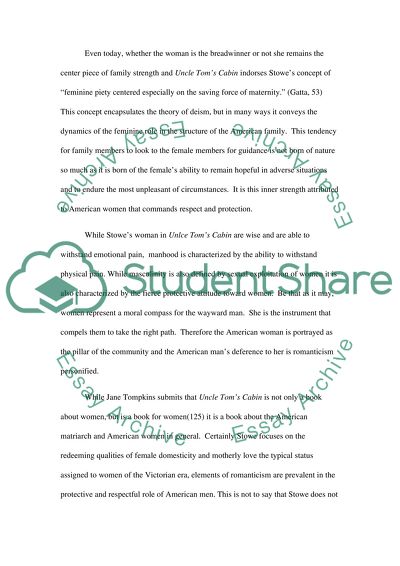Cite this document
(Harriet Beecher Stowe: An American Author Book Report/Review, n.d.)
Harriet Beecher Stowe: An American Author Book Report/Review. https://studentshare.org/literature/1545871-harriet-beecher-stowe-an-american-author
Harriet Beecher Stowe: An American Author Book Report/Review. https://studentshare.org/literature/1545871-harriet-beecher-stowe-an-american-author
(Harriet Beecher Stowe: An American Author Book Report/Review)
Harriet Beecher Stowe: An American Author Book Report/Review. https://studentshare.org/literature/1545871-harriet-beecher-stowe-an-american-author.
Harriet Beecher Stowe: An American Author Book Report/Review. https://studentshare.org/literature/1545871-harriet-beecher-stowe-an-american-author.
“Harriet Beecher Stowe: An American Author Book Report/Review”. https://studentshare.org/literature/1545871-harriet-beecher-stowe-an-american-author.


